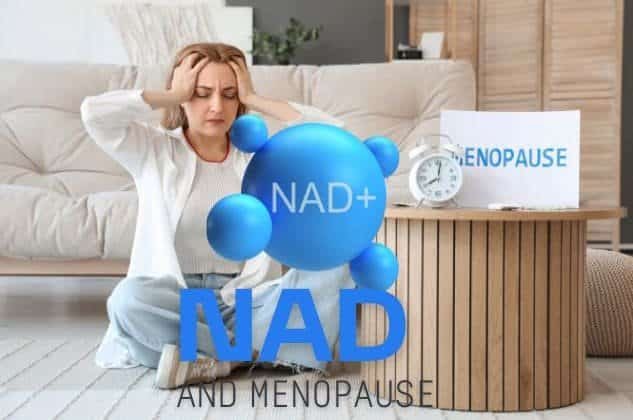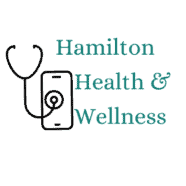
Menopause is a natural phase of life, but it often comes with uncomfortable symptoms that can disrupt daily living. From hot flashes and night sweats to fatigue, brain fog, and mood swings, many women seek ways to manage these challenges. An emerging area of interest is the connection between NAD and menopause. NAD, the long name of which is Nicotinamide Adenine Dinucleotide, is a coenzyme found in every cell of your body, crucial for energy production, DNA repair, and cellular health. Recent research suggests that the decline in NAD levels during menopause may contribute to some of these symptoms, and boosting NAD could offer relief. Let’s explore what NAD is, how NAD and menopause are linked, and whether NAD supplements might be a helpful tool for you.
What is NAD?
NAD is a molecule that helps your cells turn food into energy. It plays a key role in several processes, including:
- Energy Production: NAD supports mitochondria, the powerhouses of your cells, to convert nutrients into energy.
- DNA Repair: It helps fix damaged DNA, keeping cells healthy.
- Circadian Rhythm Regulation: NAD supports your body’s sleep-wake cycle, which affects sleep quality.
- Cell Signaling: It activates proteins like sirtuins, which are linked to healthy aging.
As you age, NAD levels naturally decline, dropping by as much as 50% by middle age. This decline is particularly significant during menopause, making the relationship between NAD and menopause an important area of study.
Why NAD Matters in Menopause

The interplay between NAD and menopause is significant because hormonal changes during this time can accelerate the natural decline of NAD. Menopause typically occurs between the ages of 45 and 55, when estrogen and progesterone levels drop, triggering symptoms like hot flashes, fatigue, and mood changes. These hormonal shifts also reduce NAD levels, which can speed up cellular aging and worsen symptoms. For example, low NAD may contribute to:
- Fatigue: Reduced NAD impairs energy production, leaving you feeling drained.
- Brain Fog: NAD supports brain cell function, so low levels can lead to memory issues or lack of focus.
- Poor Sleep: NAD helps regulate your circadian rhythm, and a decline can disrupt sleep patterns.
- Mood Swings: Low NAD may increase stress and anxiety, affecting emotional well-being.
- Low Libido: NAD supports hormone production, and its decline can impact sexual health.
Research indicates that menopause can accelerate biological aging, with some studies suggesting a woman’s biological age—the age of her cells—may increase by up to 9 years in just 6 months due to increased inflammation from estrogen loss. The connection between NAD and menopause highlights the importance of maintaining NAD levels to support cellular health during this transition.
Potential Benefits of NAD
Research on NAD and menopause is still evolving, but early studies suggest several potential benefits for women experiencing menopausal symptoms. Boosting NAD levels might help in the following ways:
1. Increased Energy

NAD is essential for mitochondrial function, which powers your cells. During menopause, low NAD and estrogen levels can sap your energy. Supplementing NAD may help your cells produce more energy, reducing fatigue and helping you feel more vibrant.
2. Clearer Thinking
Brain fog is a common complaint during menopause, making it hard to focus or remember things. NAD supports brain health by enhancing mitochondrial activity and activating proteins like SIRT1, which protect brain cells. Increasing NAD levels may help reduce brain fog and improve mental clarity.
3. Better Sleep
NAD helps regulate your circadian rhythm, which controls your sleep-wake cycle. Declining NAD levels can lead to poor sleep quality, leaving you tired during the day. By boosting NAD, you might sleep more soundly and wake up feeling refreshed.
4. Less Stress and Anxiety
Menopause can bring increased stress and anxiety due to hormonal changes. NAD supports neuroprotection by reducing oxidative stress, which can stabilize your mood. Some women report feeling calmer and less anxious after boosting NAD levels.
5. Improved Libido
Low NAD levels can contribute to reduced libido by affecting hormone production and energy levels. NAD supports the release of hormones like estrogen and testosterone, which play a role in sexual health. By improving cellular function and energy, NAD may help enhance libido during menopause.
6. Healthy Aging
Menopause accelerates cellular aging, partly due to low NAD levels. NAD supports DNA repair and reduces inflammation, which can help slow this process. Some studies suggest NAD supplementation may even reverse biological age, helping you feel younger and healthier.
How to Boost NAD Levels
Since NAD cannot be absorbed directly into cells, you need to use NAD precursors—compounds your body converts into NAD. Common precursors include:
| Precursor | Description |
| Nicotinamide Riboside (NR) | A form of vitamin B3 that efficiently boosts NAD levels. |
| Nicotinamide Mononucleotide (NMN) | Another B3 form that supports NAD production, often used in supplements. |
| Nicotinamide (Niacinamide) | A common ingredient in NAD-boosting supplements, also derived from vitamin B3. |
These precursors are available in oral supplements. Some clinics offer NAD+ IV therapy, but research suggests IV methods may be less effective since NAD doesn’t easily enter cells from the bloodstream. Animal studies, such as those using NR in mice, show improved ovarian function and egg quality, but human studies are limited. A recent human trial suggested women taking NAD precursors saw improvements in menopause symptoms, but more research is needed.
Is NAD Supplementation Safe?
NAD supplements are generally considered safe, with mild side effects like nausea, diarrhea, or headaches reported in some cases. High doses of certain precursors, like niacin, may cause flushing or elevated blood sugar, so moderation is key. Always consult a healthcare provider before starting NAD supplements, especially if you have medical conditions or take other medications. Testing NAD levels, like with an Intracellular NAD® test, can help you understand your needs and track progress.
Things to Consider
While NAD and menopause research shows promise, it’s not a magic fix. Menopause symptoms vary widely, and what works for one woman may not work for another. Most evidence comes from animal studies or small human trials, so more research is needed to confirm NAD’s benefits. Combining NAD supplementation with a healthy diet, exercise, and stress management may offer the best results. For personalized advice, book a virtual visit with a menopause specialist through your telehealth provider to discuss safe, effective options tailored to you. Source: Join Midi
Closing Thoughts

Menopause is a significant change, but it doesn’t have to define you. The emerging science on NAD and menopause offers hope for women seeking natural ways to manage symptoms like fatigue, brain fog, and mood swings. NAD is a promising tool that could help you feel more like yourself by supporting energy, brain health, sleep, and more. Talk to your doctor to see if NAD is right for you. You deserve to feel your best at every stage of life.
Struggling with menopause symptoms? Book a telehealth appointment to explore how NAD and menopause solutions can help you feel your best.
To learn more, read our related article on How Online Menopause Care is Revolutionizing Support.
Love what you’re reading? Don’t miss out on the latest insights, tips, and inspiration! Subscribe to our blog and get fresh content delivered straight to your inbox.
📬 Be the first to know.
💡 Gain valuable ideas.
🎉 Join a growing community of informed minds.
Fill out the form, submit, and let’s keep the conversation going.🌟
